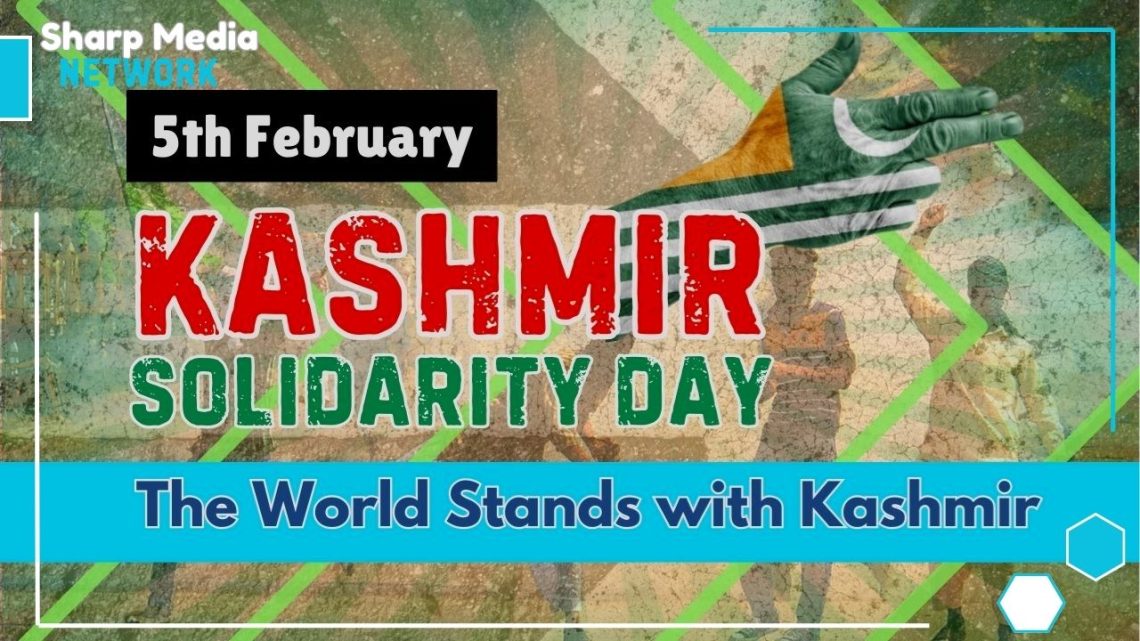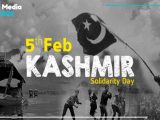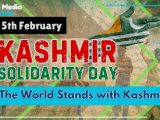
Kashmir Solidarity Conference in Moscow Highlights Urgent Need for Political Resolution
February 5, 2025The Kashmir conflict, which has long been a source of tension and human rights violations, remains unresolved despite years of international attention. A recent international conference in Moscow reignited global discussions on the urgent need for a peaceful and political resolution.
The Kashmir issue remains one of the most pressing geopolitical conflicts in the world, and an international conference recently organized in Moscow by Shahid Ghumma, Chairman of the Kashmir Alliance Forum, brought the situation to the forefront once again. The event, which featured notable speakers such as Lord Nazir Ahmed and Dr. Ghulam Nabi Fai, aimed to address the growing concerns about Kashmir’s future and the ongoing human rights violations in the region.
The conference began with Lord Nazir Ahmed’s address, where he criticized India’s actions in Indian Illegally Occupied Jammu and Kashmir (IIOJK). Lord Ahmed noted that the Indian government, led by Prime Minister Narendra Modi, used the revocation of Articles 370 and 35A as an opportunity to impose Governor’s rule, seize Kashmiri land, and strip away essential rights. He further emphasized that the controversial Domicile Law was designed to alter the demographic makeup of Kashmir, posing a grave threat to the region’s Muslim majority. Lord Ahmed also pointed out the failure of the Organization of Islamic Cooperation (OIC) and other Muslim-majority countries to press India into honoring its commitments made at the United Nations.
The speaker underlined the persistent hope that the UN Secretary General, Antonio Guterres, would step in and push for a dialogue between India, Pakistan, and the people of Kashmir to resolve the issue peacefully and promote regional stability.
Dr. Ghulam Nabi Fai, a prominent Kashmiri leader, also addressed the audience, stressing that military force alone would not resolve the Kashmir dispute. According to Dr. Fai, the issue is inherently political and requires negotiation to achieve a lasting solution. He referred to historical examples, such as the Soviet Union and apartheid South Africa, where military power did not translate into political success. Dr. Fai expressed concern that the West’s deference to India’s military and economic might has only reinforced India’s reluctance to engage in meaningful dialogue with Kashmiris and Pakistan.
Dr. Fai highlighted the ongoing atrocities committed by Indian military forces, numbering around 900,000, in their effort to maintain control over IIOJK. Shockingly, he pointed out that these human rights violations have largely gone unpunished, and in some cases, the perpetrators have been rewarded with continued power. The speaker urged the West to move beyond its passive stance and take concrete steps to address the Kashmir crisis. He referenced remarks made by former U.S. President Donald Trump, who once stated that resolving the Kashmir issue would be “an honor.” Dr. Fai believes the time has come for India to engage in dialogue with both Kashmiris and Pakistan to bring an end to the conflict.
Shahid Ghumma, the event organizer, concluded the conference by thanking the speakers and the participants for their involvement in such an important discussion. He expressed his gratitude for the contributions made by everyone, emphasizing the need for continued efforts to raise awareness of the Kashmir issue.
Other notable speakers at the event included Ambassador Malik Nadeem Abid, Secretary General of the International Human Rights Commission; Ali Raza Syed, Chairman of Kashmir Council EU; and several other key figures from various organizations advocating for Kashmiri rights worldwide.
The conference served as a powerful reminder that the Kashmir issue is far from resolved and requires immediate international attention and intervention to avoid further escalation.

